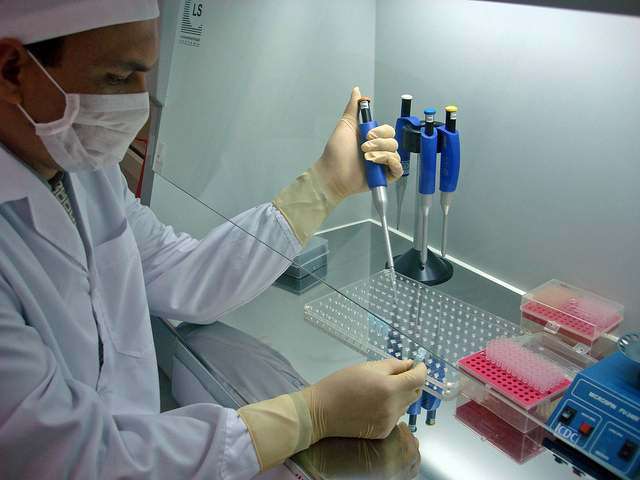Cystic Fibrosis Hope Comes as New Gene Therapy Improves Condition
Cystic fibrosis patients treated with gene therapy in the UK saw 3% improvements in lung functions during a year-long study.

While the American media continues ramping up fears about the Ebola outbreak, scientists around the world are moving swiftly to bring a multitude of promising drugs to human clinical trials. In fact, there are so many drugs in testing right now, it is hard to keep track. Here are some of the highlights from progress in Canada, the US and China.
The first human trials for the Ebola vaccine, VSV-EBOV, developed by The Public Health Agency of Canada at the National Microbiology Laboratory in Winnipeg began Monday at Maryland's Walter Reed Army Institute of Research.
Medical officials said the vaccine shows "great promise" and should "prompt the immune system to produce antibodies, which then identify and neutralize foreign objects, such as bacteria and viruses."
Should the vaccine prove as effective in human tests as results have been in animals, then "we could literally stop this outbreak," a Canadian Health Minister told the Journal.
A drug that would inhibit the Ebola virus from replicating has been under development for five years by China's Academy of Military Medical Sciences.
Last month the Chinese FDA approved JK-05 for emergency use only in military situations, based on strong preclinical and safety data. Sihuan Pharmaceutical, which partnered with the military lab, is seeking fast-track approval by the end of the year for the drug, which was shown to stop the virus in animals.
Last week, University of Utah scientists said they have isolated a potential universal drug target for Ebola that would make it easier to develop and test drugs that could treat all five known strains of the virus. The study, published in this week's online edition of Protein Science, was funded by the US National Institutes of Health. The researchers designed peptide mimics for the unchanging region in any Ebola protein that controls entry of the virus into the human host cell, initiating infection.
The US company Mapp Biopharmaceutical Inc. helped to fund the same Canadian research team in Winnipeg to produce ZMapp, which was successful in animal trials. Some of their research stock was used to treat two American Ebola survivors, Dr. Kent Brantly and Nancy Writebol, and was offered to Spanish officials for a nurse who contracted the disease.
Kentucky BioProcessing has put all other projects on hold to focus on full-scale production of the drug for Mapp, according to the Lexington Herald Leader.
In September, Health and Human Services announced that it had issued an 18-month contract with Mapp Biopharmaceutical for as much as $42.3 million for "the development and manufacturing of the medication ZMapp toward the goal of U.S. Food and Drug Administration approval."
"It is one of several treatments under development for Ebola," Dr. Nicole Lurie, assistant secretary for preparedness and response, said in a news release.
Another promising drug candidate, TKM-Ebola, which has been used to treat American physician Rick Sacra and other patients, was developed by Tekmira Pharmaceuticals based in Vancouver, BC, thanks largely to funding from the U.S. Department of Defense, reports the International Business Times.
Both ZMapp and TKM-Ebola have been tested on monkeys, which give a closer immune response to that of humans.
Be the first to comment